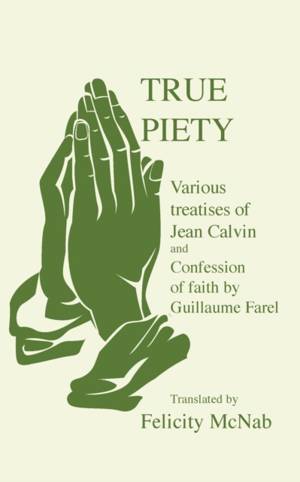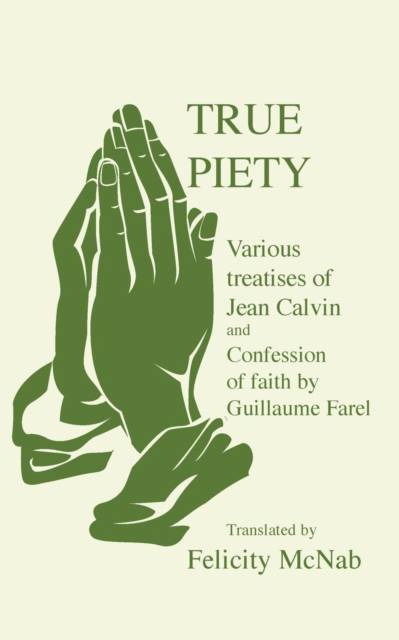
Door een staking bij bpost kan je online bestelling op dit moment iets langer onderweg zijn dan voorzien. Dringend iets nodig? Onze winkels ontvangen jou met open armen!
- Afhalen na 1 uur in een winkel met voorraad
- Gratis thuislevering in België vanaf € 30
- Ruim aanbod met 7 miljoen producten
Door een staking bij bpost kan je online bestelling op dit moment iets langer onderweg zijn dan voorzien. Dringend iets nodig? Onze winkels ontvangen jou met open armen!
- Afhalen na 1 uur in een winkel met voorraad
- Gratis thuislevering in België vanaf € 30
- Ruim aanbod met 7 miljoen producten
Zoeken
Omschrijving
This collection of texts recalls the climate of the theological background of the Reformation in Geneva. Although there is only one among the five treatises (the Confession of Faith of 1537 by William Farel) which relates directly to the events of 1536, nevertheless all five have the same orientation.
The Epistle to all lovers of Jesus Christ (1536), Calvin's Reply to Sadolet (published here with the Cardinal's Epistle), the Little Treatise on Holy Communion (1541) and the Treatise on Relics (1543) emphasise the same group of ideas.
Calvin and Farel take great trouble to convince the public at large of the need for the Reformation is still not acknowledged and are engaged in putting the faithful on their guard against the abuses of the Church of Rome. Their wish is to preach "true piety", which for the Reformers means piety which depends as little as possible on any "human manufacture".
The Epistle to all lovers of Jesus Christ (1536), Calvin's Reply to Sadolet (published here with the Cardinal's Epistle), the Little Treatise on Holy Communion (1541) and the Treatise on Relics (1543) emphasise the same group of ideas.
Calvin and Farel take great trouble to convince the public at large of the need for the Reformation is still not acknowledged and are engaged in putting the faithful on their guard against the abuses of the Church of Rome. Their wish is to preach "true piety", which for the Reformers means piety which depends as little as possible on any "human manufacture".
Specificaties
Betrokkenen
- Auteur(s):
- Uitgeverij:
Inhoud
- Aantal bladzijden:
- 280
- Taal:
- Engels
Eigenschappen
- Productcode (EAN):
- 9781910162491
- Verschijningsdatum:
- 7/01/2014
- Uitvoering:
- Paperback
- Formaat:
- Trade paperback (VS)
- Afmetingen:
- 127 mm x 203 mm
- Gewicht:
- 303 g

Alleen bij Standaard Boekhandel
+ 46 punten op je klantenkaart van Standaard Boekhandel
Beoordelingen
We publiceren alleen reviews die voldoen aan de voorwaarden voor reviews. Bekijk onze voorwaarden voor reviews.











